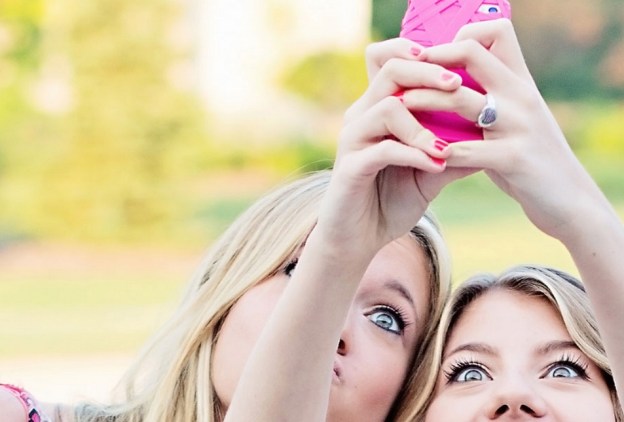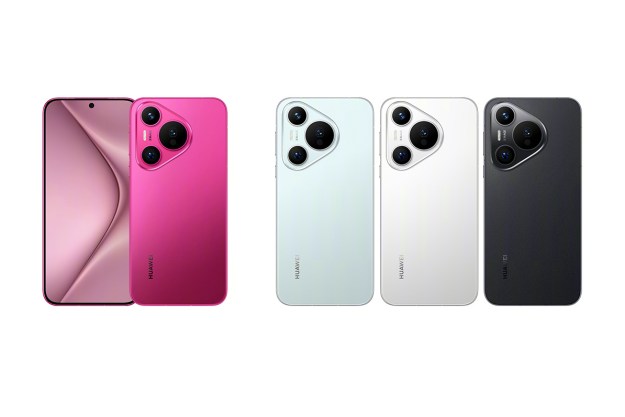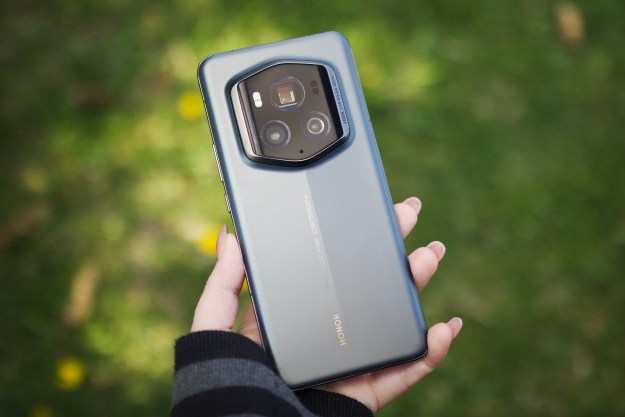
Imagine waking up for the first time on New Years morning. The sun is shining, there’s a fire crackling in the fireplace, and you think to yourself, “Gosh, I what’s the best way I can sext someone today?” The choices of the moment you’ll quickly find are easily Snapchat and Facebook’s unabashed clone Poke.
What’s a sexter to do?
While the idea of ephemeral messaging, or sending text, picture, and video messages that are swiftly destroyed, is new, exciting, and perhaps a little frightening, the idea that either of these apps might be used principally for sexting is still contentious. Snapchat on its own has even been called the new Instagram, while Facebook has been the butt of many jokes since Poke’s release. But the choice remains, and navigating that choice hinges on how both services work and, most importantly, how they each handle the messages that are supposed to self-destruct. Making that choice means taking a quick dip into the murky land of Terms of Service agreements.
What’s yours is ours
With social networks-cum-media companies, it’s become something of a given that your personal identity — who you are, what you like, your wants, your dreams — aren’t completely yours anymore. However, these companies have learned hard that using this information carelessly causes major problems. Instagram learned this lesson hard, and now Foursquare is treading lightly with their own privacy revisions. In the end, both Snapchat and Facebook attempt to treat your identity with import, even as they find ways to make a profit against it. It’s just a question of scale.
Snapchat outlines in their TOS that collect personal information that identifies you as an individual, such as your name, email address, phone number, and Facebook ID, as well as aggregating usage data like your device’s operating system and UDID. However, Snapchat is careful in how it outlines the way it shares that personal information with third parties:
“We may share your personal information with third parties including as follows:
- with your consent, for example, when you agree to our sharing your information with other third parties for their own marketing purposes subject to their separate privacy policies;
- with third party vendors, consultants and other service providers who work for us and need access to your information to do that work;
- to (i) comply with laws or to respond to lawful requests and legal process, (ii) to protect the rights and property of Snapchat our agents, customers, members, and others including to enforce our agreements, policies and terms of use or (iii) in an emergency to protect the personal safety of Snapchat , its customers, or any person;
- in connection with or during negotiation of any merger, financing, acquisition or dissolution, transaction or proceeding involving sale, transfer, divestiture or disclosure of all or a portion of our business or assets to another company.”
Poke inherits Facebook’s overarching policy; that is, collecting your personal and usage data in an attempt to encourage “frictionless sharing,” as well as aid their partners and advertisers. However, they too are careful to add that “you always own all of your information.”
“Your trust is important to us, which is why we don’t share information we receive about you with others unless we have:
- received your permission;
- given you notice, such as by telling you about it in this policy; or
- removed your name or any other personally identifying information from it.”
Another key difference here is that Snapchat does not divulge location data while Facebook does. Keep that in mind when you choose one over the other.
Privacy is King
Somewhat lost in the entire Snapchat-Poke discussion was the idea that messages sent on either services needn’t be explicit and suggestive. You can, but, especially where Facebook is concerned, poking your uncle probably shouldn’t be fraught with tension.
But those messages being deleted at all creates a space where privacy is that much more important. If you as the user decided that what you sent was sensitive, anyone else seeing it becomes an even bigger issue.
Snapchat attempts to delete your shared messages from their servers as soon as possible — typically as soon as the user has seen them, though there are vague as to whether or not that’s a certainty.
“When you send or receive messages using the Snapchat services, we temporarily process and store your images and videos in order to provide our services. Although we attempt to delete image data as soon as possible after the message is transmitted, we cannot guarantee that the message contents will be deleted in every case. For example, users may take a picture of the message contents with another imaging device or capture a screenshot of the message contents on the device screen. Consequently, we are not able to guarantee that your messaging data will be deleted in all instances. Messages, therefore, are sent at the risk of the user.”
Facebook retains Poke messages for two days before deleting them. However, those messages can be recovered for up to 90 days. Per a clarification they made with TechCrunch:
“All Poke messages are stored in encrypted form and retained for two days after the last recipient views the poke — a process that helps facilitate abuse reporting. After that period, a Poke’s encryption key is deleted. However, it may still be possible to recover that key from logs or backups. After a fixed time period, this key becomes inaccessible, rendering the content completely unreadable (unless it was copied for abuse reporting.) Today, that fixed period can be up to 90 days, but we are working to significantly reduce that period over the next several weeks as we verify the stability of the Poke deletion system.”
Of course, all this says nothing about people saving your secret messages via screenshot. All told, you’ll want to take care when using either app, especially as we’re still working out what it means to have self-deleting messages.
Is this trend over yet? Maybe we should just go back to phone sex.
Editors' Recommendations
- Samsung Galaxy S21 vs. OnePlus 8T: $800 smartphone showdown
- No, Snapchat’s original show wasn’t bigger than Game of Thrones


